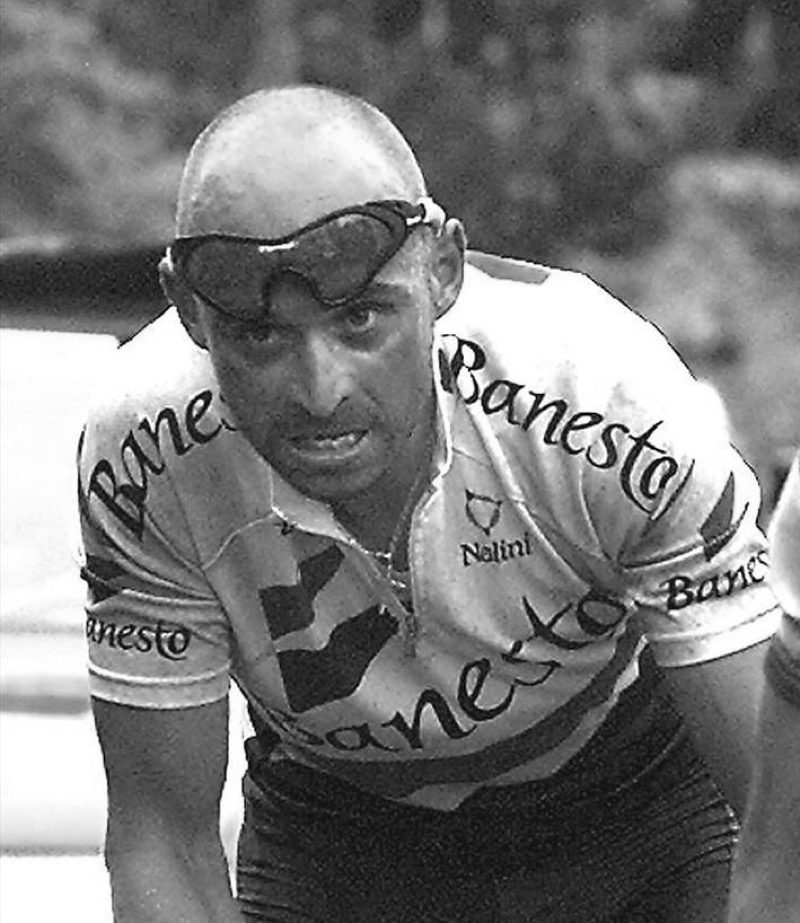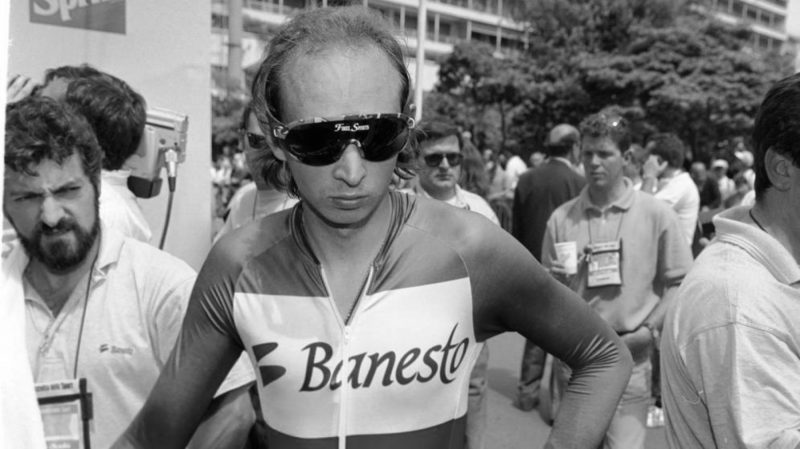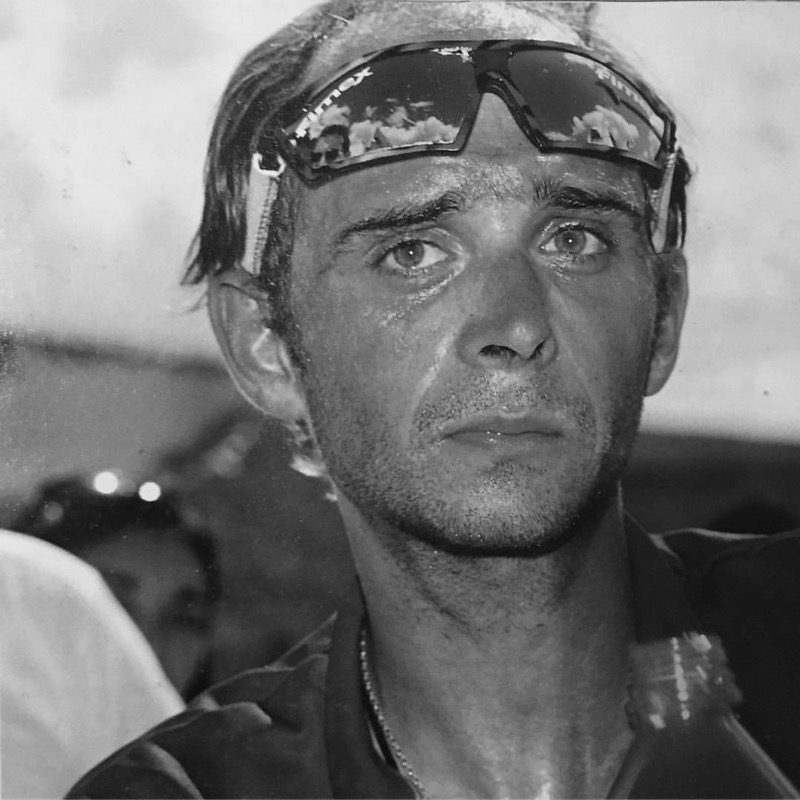It hasn’t been a good week for the sport of cycling’s past champions; but not just men who won races, colourful men with personality.
First we lost Six Day star Andreas Kappes to a bee sting, of all things.
And we heard today that Armand de las Cuevas had taken his own life on the Island of Reunion in the Indian Ocean, which was his home in recent years.
Very sad.

De las Cuevas intrigued me, his career was a roller coaster, brilliant and winning big or a nonentity in the peloton; then there were the tales of his liking for a good cigar…
The palmares ‘Bible,’ “Gotha” sums him up thus;
“Man with a whimsical career.
“When things were going his way, he could beat the very best of his generation, on other days he inexplicably broke down.
“He was talented enough, but his lack of regularity cost him the place as a leader within a formation.”
The son of Spanish immigrants, he was born in Troyes, Burgundy but the family moved to Bordeaux where he didn’t have an easy upbringing; with some sources describing him as a ‘street kid.’
It was 1986 when he first appears on the cycling radar with a win in the Junior Tour of Lorraine and one year later, in 1987 he was already showing his talent against the watch which would make him one of the finest ‘chronomen’ of his generation – when he felt like it, that is – with third place in the amateur Chrono des Nations.
In 1988 he won the tough Tour of Britany and was third in the time trial in the Circuit de la Sarthe to winner Thierry Marie and Viascheslav Ekimov – both men of huge chrono quality.
He turned professional with Banesto in 1989 at 21 years-of age and a year later in 1990 won a stage for the team in the Tour of Asturias; and came third behind specialists, Russia’s Ekimov – who ran out champion – and French team mate, Francis Moreau in the World Professional Pursuit Championship.
Season 1991, still in the colours of the Spanish bank, was one of his best with two big single day wins, the French Professional Road Race Championship and the GP Ouest France Plouay, as well as a stage in the Tour of the Basque Country.

In 1992 he won the prologue and finished fourth overall in the mountainous Tour of Romandie.
But it’s a ride where he didn’t win which is one of the ones he’s best remembered for that year; second to Banesto team mate Miguel Indurain in the 65 kilometre time trial in Luxembourg in the Tour de France.
De las Cuevas was exactly three minutes back on his boss on a day when Lance described ‘Big Mig’ as; ‘a man amongst boys.’
Gianni Bugno, Greg Lemond and Alex Zulle were just some of the big TT stars of the day that finished behind the Frenchman.
Season 1993 saw him win the Etoile des Beseges and a stage in Paris-Nice but there was a major disagreement with his team in the Giro.
Management wanted him to ‘cruise’ the mid-race time trial, saving his legs to support Indurain in the forthcoming mountain stages; but de las Cuevas reckoned he could win it and rode it to do so.
He was wrong, didn’t win and left the team to join ‘Napoleon’ Guimard at Castorama, mid-season – giving the French team a GP des Nations wins at the end of the year.
His next year, 1994 with Castorama was one any pro would be proud of; the Vuelta a Burgos, Clasica San Sebastian, Paris-Camembert, the Giro prologue and top 10 overall, the Tour of Romandie prologue and second overall.
In Le Tour he again showed his chrono abilities with only Indurain and Rominger – both Hour Recordmen – the only ones to best him in the 64 kilometre time test.
The following season with Casto, 1995 was leaner with just the Trophee des Grimpeurs to show for his year.
He moved to Casino for 1996 but failed to shine before moving back to Banesto for 1997 where he was third overall in the Volta a Galicia and second in the Vuelta Valenciana.
His last ‘real’ season, 1998 was one of his best with GC wins in the Route du Sud and Dauphine.
In 1999 he was with ‘last chance saloon’ squadra Amica Chips – albeit that was the year he decided to try boxing; three fights, two wins and one loss on points.

Always spiritual, impulsive and searching for the ‘meaning of life’ de las Cuevas moved to the French island of La Reunion, in the Indian Ocean, to the east of Madagascar, a decade ago.
He started a ‘cycling school’ there and raced himself on the mountainous island.
His 1996 Casino team mate, Pascal Chanteur summed de las Cuevas up as;
“A fragile man but an artist.”
Armand de las Cuevas, non-conformist champion, ‘chronoman’ of quality and colourful character, rest in peace, Monsieur.



